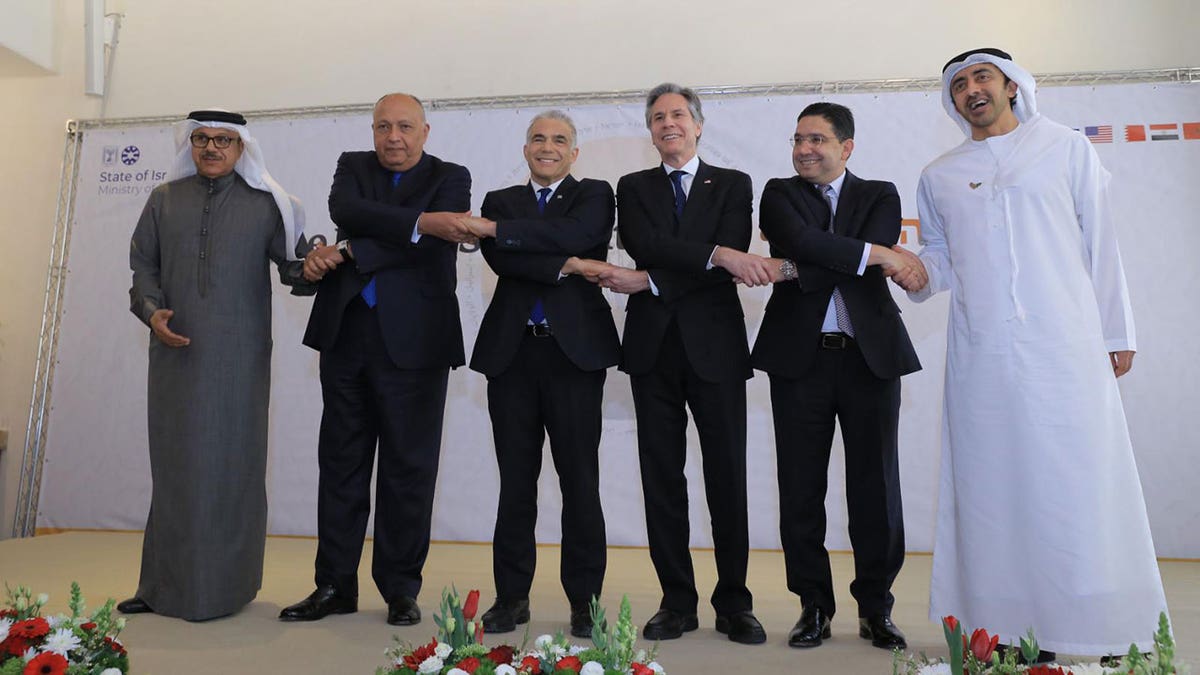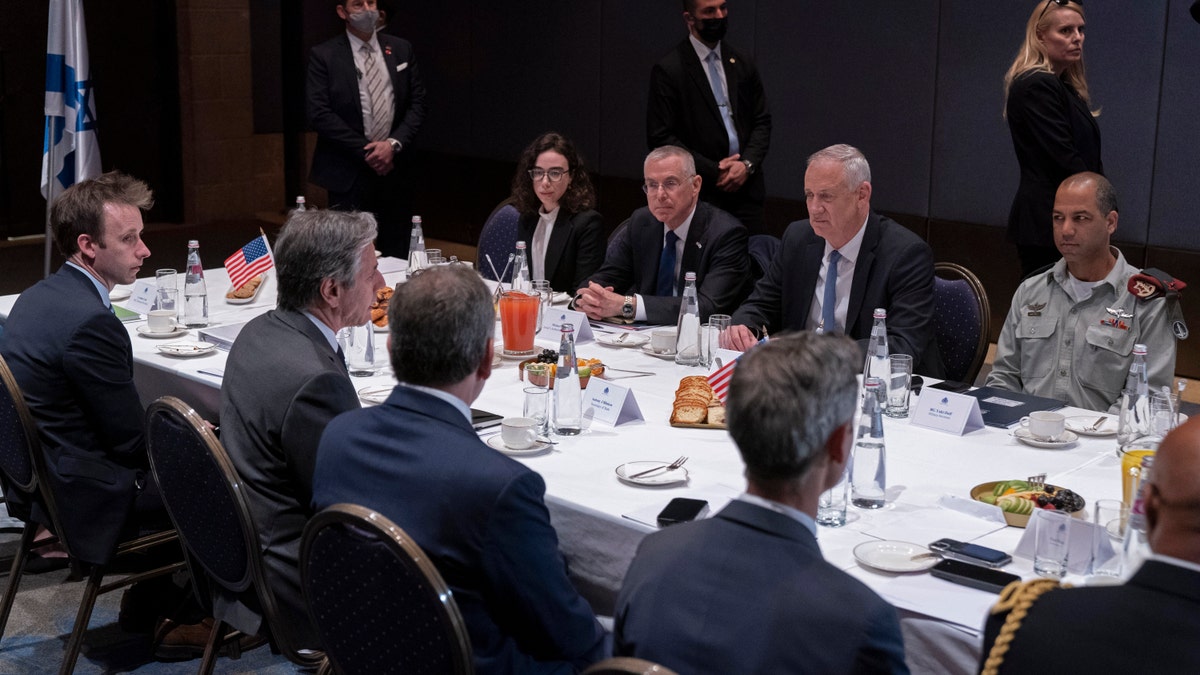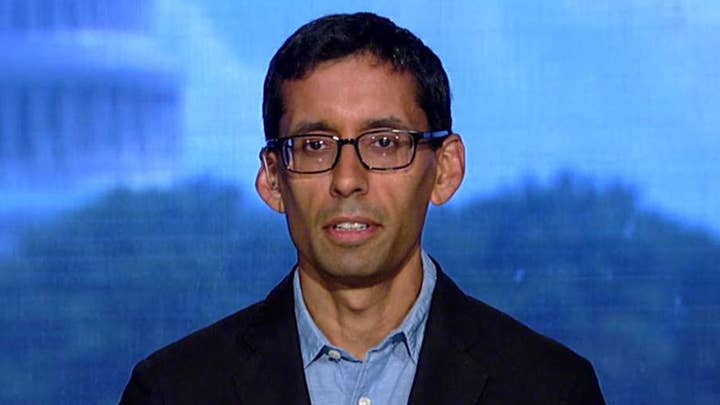Fox News Flash top headlines for March 30
Fox News Flash top headlines are here. Check out what's clicking on Foxnews.com.
One of Secretary of State Antony Blinken's goals this week as he tours the Middle East and North Africa: to ease the nerves of close U.S. regional allies reportedly angry at the Biden administration’s determination to rejoin the Iran nuclear deal.
Rejoining the deal – officially known as a Joint Comprehensive Plan of Action – is seen as a Biden administration foreign policy priority. Then-President Donald Trump backed out of the deal in 2018.
At a news conference Monday at the end of what was billed as the Negev Summit in Israel, Blinken was joined by four Arab foreign ministers, three of whom were part of the historic Abraham Accords – the United Arab Emirates, Bahrain and Morocco – as well as Egypt, which was the first Arab country to sign a peace deal with the Jewish state, in 1979.

An attack took on two Israeli police took place a few hours after a historic two-day summit had begun in the Negev, with foreign ministers from Israel, the United States, the United Arab Emirates, Bahrain, Morocco and Egypt. (Asi Efratii)
ISRAEL: TERROR GROUP CLAIMS RESPONSIBILITY FOR MOTORCYCLIST GUNMAN WHO KILLED 5 PEOPLE
At the conclusion of the summit, Blinken, perhaps surprisingly, hailed the success of the Trump-era accords and noted the U.S. "has and will continue to strongly support a process that is transforming this region and beyond." Yet observers worry a U.S. return to the nuclear deal will be even more transformative to the region, but not necessarily in a positive way.
The historic Abraham Accords, brokered by the Trump administration, saw Israel sign peace deals with the United Arab Emirates, Bahrain, Morocco and Sudan. Jason Greenblatt, a central architect of the Abraham Accords, warned the United States was facing a stark choice. "Despite what was a wonderful public event at the Negev Summit, and indeed it truly was historic, important and significant, there are serious, dangerous issues lurking just beneath the surface. It is imperative that the Biden administration embrace our friends and allies in the Gulf, not sign the Iran deal, and work closely and carefully with our friends and allies there to bring stability, opportunity and safety to all. This is a battle of good versus evil, and the United States has to choose. I hope the Biden administration chooses wisely."

Secretary of State Antony Blinken, second from left, meets with Israel's Defense Minister Benny Gantz, second from right, at the David Citadel Hotel in Jerusalem, Sunday, March 27, 2022. (AP Photo/Jacquelyn Martin, Pool)
Greenblatt served as the U.S. envoy for international negotiations and also worked closely on the Trump administration’s Middle East peace plan. He told Fox News Digital that despite an initial reluctance to acknowledge the Abraham Accords, he believes the current administration now has taken it on fully.
BIDEN ADMIN CONSIDERING REMOVING IRAN'S IRGC FROM TERROR LIST AS PART OF IRAN DEAL TALKS: SOURCES
"Although it is true that the Biden administration seemed unwilling to refer to the term Abraham Accords for approximately nine months after President Biden's inauguration, Secretary Blinken used the term multiple times at the Negev Summit, so I don't think the administration was looking to take credit for the historic achievement of President Trump and the bold, courageous leaders of the Abraham Accords countries," he said.
Greenblatt went on, "The Abraham Accords were designed to transcend administrations and leaders. Unfortunately, what we are seeing now are actions by the Biden administration which are putting a serious strain upon the Middle East and between the United States and our allies in the Middle East. The Biden administration is less focused on the Middle East, reportedly alarmingly close to signing a weaker, shorter and even more dangerous deal with Iran, and not appropriately standing with Saudi Arabia and the UAE when they are attacked by the Iran-funded Houthi terrorist puppets. All of these steps are harmful and dangerous to the region."

Yemeni police inspect a site of Saudi-led airstrikes targeting two houses in Sanaa, Yemen, Saturday, March 26, 2022. (AP Photo/Hani Mohammed)
Last Friday, Houthi terrorists fired missiles at a Saudi oil refinery in Jeddah, one of many recent attacks on the kingdom by the Yemen-based, Iran-backed proxy. Just last year, the Biden administration shocked some regional allies by delisting the Houthis from its terror list.
SHOOTING IN ISRAEL KILLS 2 POLICE OFFICERS AMID HISTORIC US-MIDEAST SUMMIT
Greenblatt told Fox News Digital that the stakes were very high: "It does seem that the Biden administration is keen to enter into a deal with the devil, that is, the Iranian regime, at tremendous cost to Israel and our Arab allies. The more the U.S. fails to stand by our allies, the more our allies will seek to work together and strengthen their relationships, including through the Abraham Accords. But the Biden administration needs to pay careful attention. I am seeing now what I saw when I joined the White House in January 2017 – some of our important allies in the Gulf felt abandoned by the Obama administration and started looking to China as a new important ally. That is bad for the countries in the region, but even worse for the United States."
Speaking with Dana Perino on "America’s Newsroom" Tuesday, Michael Singh, a former senior director for Middle East affairs at the National Security Council in the Bush administration, observed that the administration was "encountering a lot of skepticism from our partners."
CLICK HERE TO GET THE FOX NEWS APP
Singh also praised the Abraham Accords as one of the most positive developments the region had witnessed in years, but he also cautioned that "we have to bear in mind that again, part of what's bringing them together are real questions about the U.S. will (to) defend our partners and frankly, U.S. capabilities, as they see our priorities around the world change."
Blinken’s trip concludes Wednesday in Algeria, where he is due to meet with its president and foreign minister to discuss regional security and other issues.










































